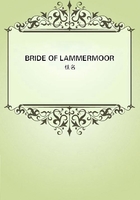
第123章
But, however, once for all, and in broad Scotch, your father and mother like what is proposed, and if you can take a plain young fellow for your husband, who will never cross you in anything you have a mind to, I will place you at the head of the best establishment in the three Lothians; you shall have Lady Girnington's lodging in the Canongate of Edinburgh, go where you please, do what you please, and see what you please--and that's fair. Only I must have a corner at the board-end for a worthless old playfellow of mine, whose company I would rather want than have, if it were not that the d--d fellow has persuaded me that Ican't do without him; and so I hope you won't except against Craigie, although it might be easy to find much better company.""Now, out upon you, Bucklaw," said Lady Ashton, again interposing; "how can you think Lucy can have any objection to that blunt, honest, good-natured creature, Captain Craigengelt?""Why, madam," replied Bucklaw, "as to Craigie's sincerity, honesty, and good-nature, they are, I believe, pretty much upon a par; but that's neither here nor there--the fellow knows my ways, and has got useful to me, and I cannot well do without him, as Isaid before. But all this is nothing to the purpose; for since Ihave mustered up courage to make a plain proposal, I would fain hear Miss Ashton, from her own lips, give me a plain answer.""My dear Bucklaw," said Lady Ashton, "let me spare Lucy's bashfulness. I tell you, in her presence, that she has already consented to be guided by her father and me in this matter.
Lucy, my love," she added, with that singular combination of suavity of tone and pointed energy which we have already noticed--"Lucy, my dearest love! speak for yourself, is it not as I say?"Her victim answered in a tremulous and hollow voice: "I HAVEpromised to obey you--but upon one condition.""She means," said Lady Ashton, turning to Bucklaw, "she expects an answer to the demand which she has made upon the man at Vienna, or Ratisbon, or Paris--or where is he?--for restitution of the engagement in which he had the art to involve her. You will not, I am sure, my dear friend, think it is wrong that she should feel much delicacy upon this head; indeed, it concerns us all.""Perfetly right--quite fair," said Bucklaw, half humming, half speaking the end of the old song--"It is best to be off wi' the old love Before you be on wi' the new.